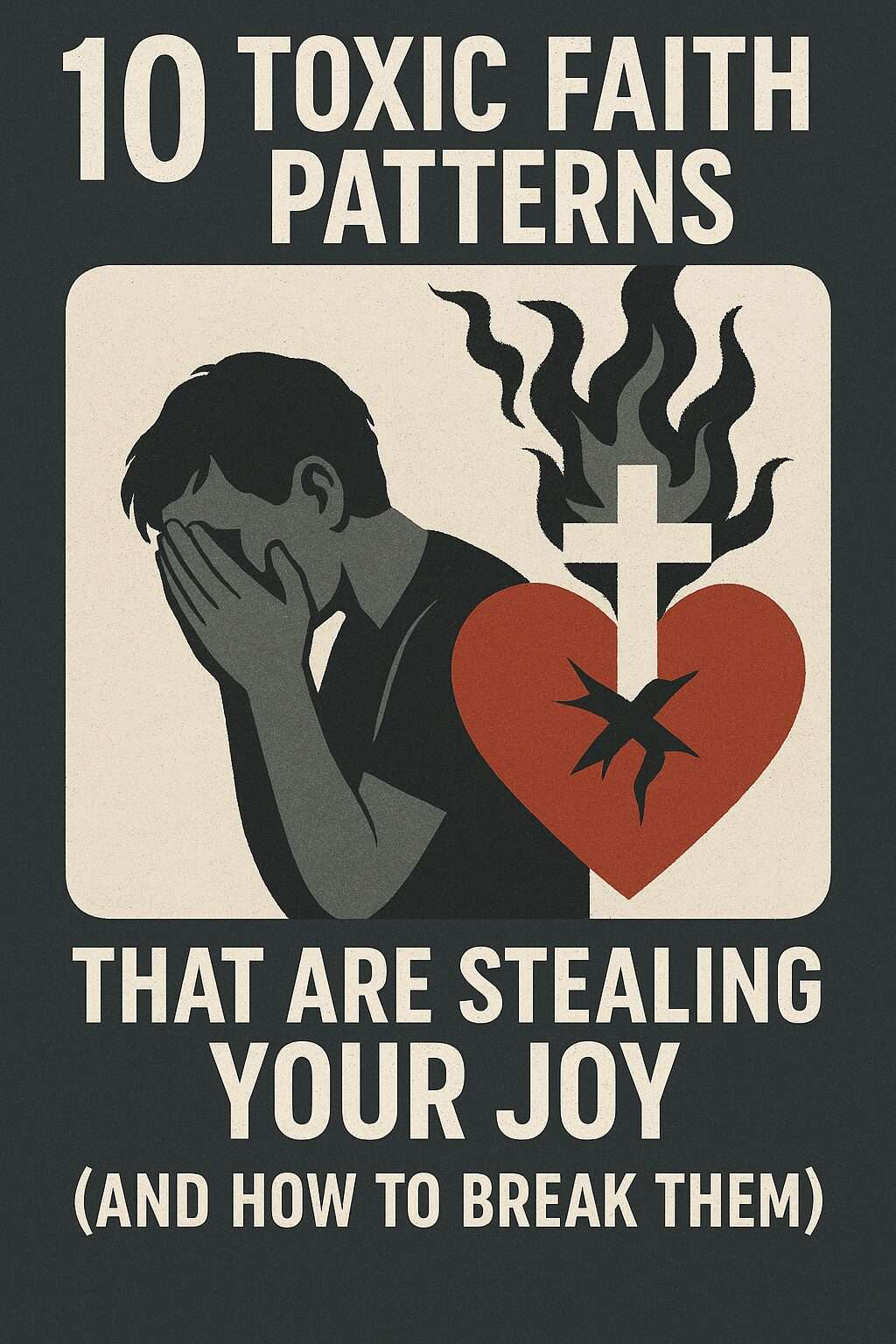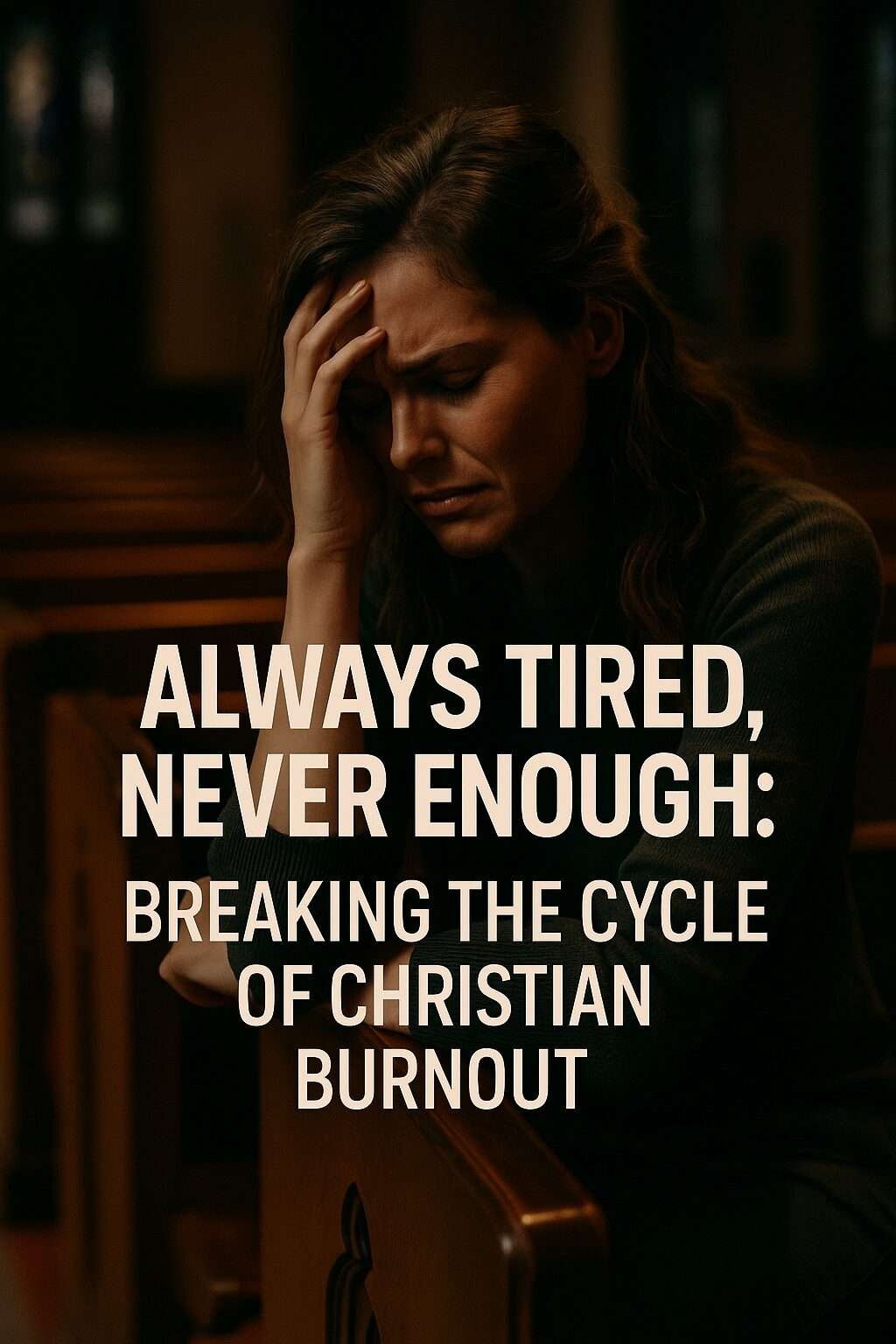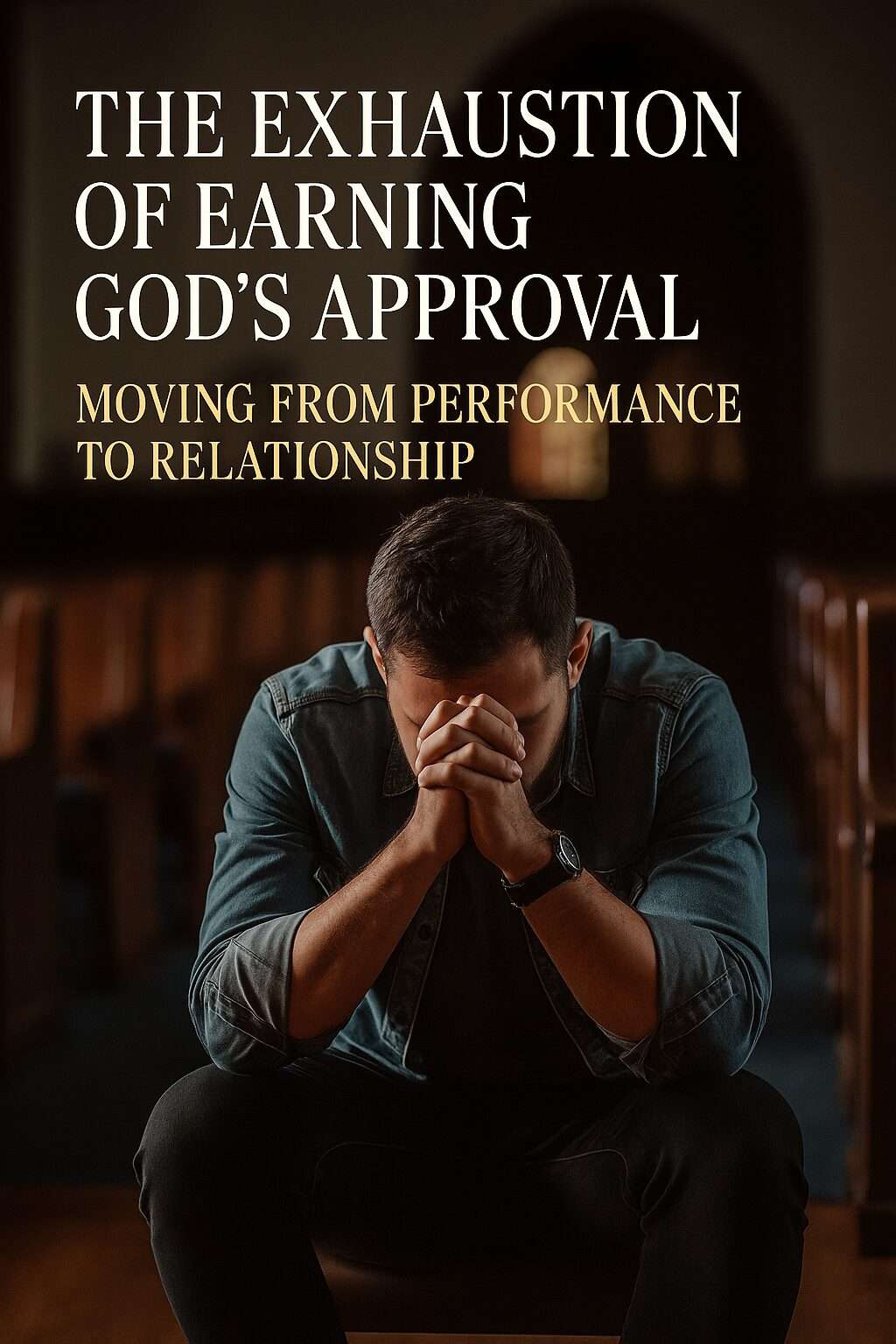It often happens without you noticing.
The vibrant relationship with God you once enjoyed gradually transforms into a carefully choreographed religious routine. Your once-authentic faith subtly shifts into a performance—complete with rehearsed prayers, polished testimonies, and the right spiritual vocabulary.
You’re still doing all the “right things,” but something essential has changed. That genuine connection you once felt has been replaced by a nagging sense of going through the motions.
In Scott Johnson’s transformative novel THE CALL, protagonist Bob Cooper discovers this truth on his mysterious mountain journey. Like many believers, Bob realizes he’s been climbing for God’s approval rather than living from God’s acceptance—a performance instead of a relationship.
If you suspect your faith has become more about performance than presence, here are six revealing signs—and more importantly, how to reclaim the authentic relationship God intended.
Sign #1: Prayer Has Become a Duty Rather Than a Connection
The Performance Indicator: You measure prayer by duration, frequency, or eloquence rather than connection. Prayer feels like something to complete rather than someone to encounter.
In THE CALL, Bob confronts this reality when Kinsman asks him a penetrating question: “Are you praying TO God or FROM God?“
This distinction reveals everything about our approach to prayer:
- Praying TO God (performance): Assumes separation that must be bridged through perfect words or spiritual intensity.
- Praying FROM God (presence): Recognizes union—”Christ in you” as actual reality, not just theological concept.
How Real Faith Approaches Prayer: Authentic faith sees prayer as conversation flowing from established connection, not religious effort trying to create connection.
Making It Real Again:
- Begin prayer by acknowledging the connection that already exists: “Father, thank you that I am in You and You are in me.”
- Replace prayer metrics (time, words, frequency) with connection awareness.
- Spend more time listening than speaking.
Key Takeaway: Prayer becomes real again when it shifts from obligation to opportunity—from trying to reach God to experiencing the God already present.
Sign #2: You Feel Spiritually Impressive Around “Weaker” Christians
The Performance Indicator: You subtly (or not so subtly) compare your spiritual disciplines, biblical knowledge, or ministry involvement to others—and feel satisfied when you measure favorably.
In performance-based Christianity, other believers become either competition or audience.
THE CALL addresses this when Bob discovers that “most people believe they must fight for everything they need… They became slaves to their circumstances, prisoners of their own striving.” This competitive climbing creates a spirituality built on comparison rather than completion.
How Real Faith Approaches Others: Authentic faith sees other believers as fellow recipients of grace, not competitors in a spiritual achievement race.
Making It Real Again:
- Practice celebrating others’ spiritual insights without mentally comparing them to your own.
- Ask yourself: “Am I sharing this spiritual experience to help others or impress them?”
- Intentionally learn from believers you’ve previously deemed “less mature.”
Key Takeaway: Faith becomes real again when spiritual maturity is measured by growing love, not growing impressiveness.
Sign #3: Silence from God Feels Like Punishment
The Performance Indicator: When God seems silent, you assume it’s because you’ve disappointed Him. You frantically review recent behaviors trying to identify what you did wrong.
This reaction reveals a transactional view of relationship with God—a performance paradigm where divine responses must be earned.
In THE CALL, Bob experiences this shift when he realizes that “God doesn’t play hide-and-seek… He’s not remote, a distant cloud in the sky trying to escape connection; He is near.“
How Real Faith Approaches Silence: Authentic faith sees divine silence as an invitation to deeper listening, not punishment for imperfect performance.
Making It Real Again:
- When facing silence, declare: “God’s quietness doesn’t mean absence or disapproval.”
- Replace “What did I do wrong?” with “What are You teaching me in this silence?”
- Look for God’s presence in unexpected places during seemingly silent seasons.
Key Takeaway: Faith becomes real again when you understand that God’s silence isn’t withdrawal; it’s often an invitation to find Him in new ways.
Sign #4: You’re Exhausted by Your Faith
The Performance Indicator: Your spiritual life leaves you depleted rather than energized. Christian living feels like a demanding job rather than a restful relationship.
This exhaustion is the inevitable result of performance Christianity—where you’re always climbing but never arriving.
In THE CALL, Bob confronts this reality when Kinsman tells him, “You were never meant to climb. The mountain was never meant to be a climb.” This revelation transforms Bob’s understanding from striving to receiving.
How Real Faith Approaches Spiritual Energy: Authentic faith finds its source in Christ’s finished work, not personal effort. It energizes rather than depletes.
Making It Real Again:
- Take inventory of which spiritual activities drain versus energize you.
- Schedule regular intervals of genuine Sabbath—where you simply receive God’s love without “producing” anything spiritual.
- Replace “I should” with “I am invited to” when approaching spiritual disciplines.
Key Takeaway: Faith becomes real again when it aligns with Jesus’s invitation: “Come to me, all you who are weary and burdened, and I will give you rest” (Matthew 11:28).
Sign #5: Your Spiritual Life Fluctuates Based on Your Behavior
The Performance Indicator: Your sense of God’s presence and pleasure rises and falls with your latest spiritual performance. Good behavior means God is close; poor choices mean He’s distant.
This rollercoaster reveals a fundamental misunderstanding of relationship with God—making His presence conditional on your performance.
THE CALL addresses this when Bob discovers that true freedom means “you stop defining yourself by what you do—you finally discover who you are.” This identity shift creates stability amid fluctuating behaviors and feelings.
How Real Faith Approaches Behavior: Authentic faith understands that while behavior matters, it doesn’t determine God’s presence or love. God’s commitment isn’t contingent on your latest spiritual performance.
Making It Real Again:
- Practice distinguishing between communion (relationship) and consequence (results of choices).
- When you make mistakes, declare: “My behavior may change, but my belonging doesn’t.”
- Identify areas where you’ve made God’s presence dependent on your performance.
Key Takeaway: Faith becomes real again when your spiritual security comes from Christ’s consistent character rather than your inconsistent behavior.
Sign #6: You Keep Your Struggles Hidden
The Performance Indicator: You carefully curate your spiritual image, sharing victories while hiding struggles. Real-time battles remain private until they become past-tense testimonies.
This pattern reveals fear that spiritual worth depends on performance—that struggles might disqualify you from God’s (or others’) approval.
In THE CALL, Bob confronts this when he realizes that “the cracks beneath” his seemingly perfect life were part of a “carefully constructed illusion” he maintained.
How Real Faith Approaches Struggles: Authentic faith sees vulnerability not as spiritual weakness but as the context for genuine grace. Struggles don’t disqualify; they reveal our ongoing need for Christ.
Making It Real Again:
- Identify one spiritual struggle you’ve been hiding, and share it with a trusted friend.
- Practice “real-time honesty” with God instead of waiting until you’ve overcome to acknowledge struggles.
- Create or join environments where authentic spiritual conversation is valued above polished religious performance.
Key Takeaway: Faith becomes real again when it makes room for authentic struggle rather than demanding perfect performance.
The Path Back to Authentic Faith: 4 Practical Steps
Identifying performance-based faith is just the beginning. Here’s how to actively reclaim the authentic relationship God intended:
1. Embrace Your Identity in Christ as Your Starting Point
Performance begins with lack; authenticity begins with fullness. Your primary spiritual practice should be remembering who you already are in Christ.
As THE CALL workbook emphasizes: “You are not climbing from emptiness. You are moving from fullness.“
Practical Application: Each morning, declare one truth about your identity in Christ before attempting any spiritual activity or service.
2. Practice Receiving Before Serving
Performance Christianity emphasizes giving to God; authentic faith prioritizes receiving from God.
THE CALL illustrates this through Bob’s transformation when he discovers that “when you stop climbing, you start living from what’s already been given.“
Practical Application: Before serving others or God in any capacity, spend time consciously receiving God’s love, grace, and strength for that service.
3. Cultivate Honest Community
Performance thrives in isolation and superficial community; authenticity requires relationships where real struggles can be shared without judgment.
As portrayed in THE CALL, transformation often happens in the context of authentic connection where “masks can finally come off.“
Practical Application: Identify one person with whom you can practice complete honesty about your spiritual journey—including doubts, failures, and questions.
4. Establish Identity-Reinforcing Habits
Performance-based habits focus on earning approval; identity-based habits focus on living from approval already given.
THE CALL workbook describes this as “building habits that match your identity” rather than trying to build an identity through habits.
Practical Application: Evaluate your spiritual disciplines: Do they flow from who you are in Christ, or are they attempts to become worthy of His love?
From Performance to Presence
The shift from performance-based to presence-based faith doesn’t happen overnight. Old patterns of religious striving run deep and often resurface during stress or spiritual dryness.
But as Bob discovers in THE CALL, the journey from exhausting religious performance to authentic spiritual presence begins with a simple but profound realization:
“You aren’t chasing purpose—you’re walking in it. You aren’t begging for approval—you’re already fully accepted. You aren’t working for rest—you’re living from it.“
This transformation isn’t about doing faith differently; it’s about understanding your position differently. It’s not about climbing better techniques; it’s about discovering you’re already at the summit in Christ.
Performance says, “I’ll do this so God will love me.” Presence says, “Because God loves me, I’ll do this.”
That subtle shift changes everything.
THE CALL illustrates this journey through Bob’s powerful story—moving from striving to sonship, from exhaustion to exhilaration, from performance to presence.
Want to go deeper? THE CALL workbook is your next step in breaking free from performance-based spirituality and discovering the relationship God always intended. More than just questions, it’s a guided journey from exhausting religious effort to liberating grace. Click here www.graceempoweredliving.com/call to begin your transformation.
Written by, Scott Johnson is an author of thirteen books who helps people break free from performance-based spirituality. Drawing from over four decades of ministry experience, Scott empowers others to move beyond obstacles toward a fulfilled life through God’s grace. His passion is helping people discover they are already approved, already loved, and already complete in Christ—no exhausting religious performance required.
SJ





